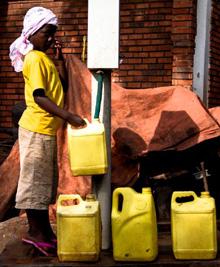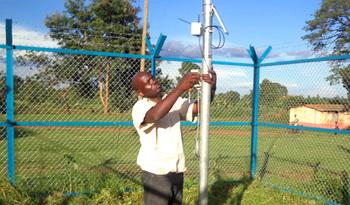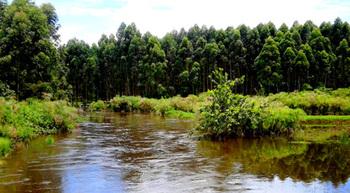Context
The impacts of climate change, strong population growth and the degradation of water catchment areas are leading to a decrease in water resource availability and an increase in droughts and flooding, especially in the semi-arid northern and north-eastern parts of Uganda. These changes are intensifying the need for effective, climate-sensitive water resources management and for water reservoirs for agriculture to be used efficiently.
Throughout the country, the population still does not have adequate access to a sustainable drinking water supply (79 per cent) and sanitation (19 per cent). Sanitation remains especially challenging in the capital Kampala. More than 90 per cent of the urban population is reliant on local, decentralised sanitation solutions that require faecal sludge management services. However, these services are inadequate along the sanitary disposal chain and are neither regulated nor monitored. A sustainable master plan does not exist.
The Ministry of Water and Environment has started to create the general conditions for improving the situation. On the whole, however, Ugandan water sector institutions still do not have adequate resources, expertise and capacity to implement climate change adaptation measures and inclusive sanitation.


